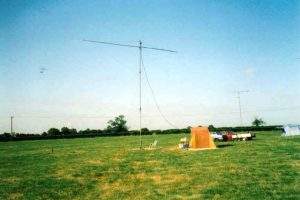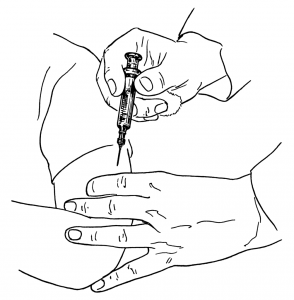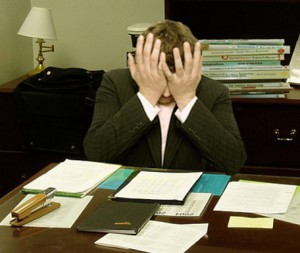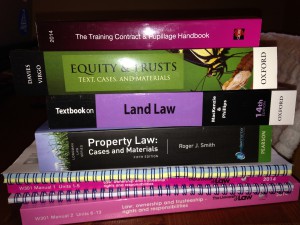 Anyone who has been unfortunate enough to have dealings in the Family Court knows that ready access to justice is critically important when matters of marital property and child welfare are at stake. Access to justice is often talked about in terms of cost, and this is a serious obstacle to many especially since cuts to Legal Aid have started to bite the most vulnerable. However, access is also about accessibility: given a judgment from a court, can the average person understand it?
Anyone who has been unfortunate enough to have dealings in the Family Court knows that ready access to justice is critically important when matters of marital property and child welfare are at stake. Access to justice is often talked about in terms of cost, and this is a serious obstacle to many especially since cuts to Legal Aid have started to bite the most vulnerable. However, access is also about accessibility: given a judgment from a court, can the average person understand it?
Category: law
 WSPR is a way of sending a tiny amount of data over huge distances using very little power. It’s used by radio enthusiasts to see what propagation conditions are like: receivers all over the world report what they hear to WSPRnet which serves as a real-time map of the radio world. The protocol itself is amazing: it takes nearly two minutes to send just 50 bits of data, and has such clever error-correction that only a tiny amount of received signal is needed to get a clean decode. Seriously, if you’re at all interested in information theory, then read the spec (at Appendix B of that link).
WSPR is a way of sending a tiny amount of data over huge distances using very little power. It’s used by radio enthusiasts to see what propagation conditions are like: receivers all over the world report what they hear to WSPRnet which serves as a real-time map of the radio world. The protocol itself is amazing: it takes nearly two minutes to send just 50 bits of data, and has such clever error-correction that only a tiny amount of received signal is needed to get a clean decode. Seriously, if you’re at all interested in information theory, then read the spec (at Appendix B of that link).
 To observers in some foreign lands, the ban on audio and video recordings being made in British courts must seem like an affront to open justice. What is undoubtedly more bizarre is the position on note-taking by people in the public gallery. Although there is no statutory provision on this, there has long been a belief that members of the public are either banned from taking notes, or have to ask the judge’s permission before doing so. People have been castigated or even threatened with ‘contempt in the face of the court’ (a particularly serious form of contempt) for daring to take notes during a trial. Bona fide journalists seem to get better treatment.
To observers in some foreign lands, the ban on audio and video recordings being made in British courts must seem like an affront to open justice. What is undoubtedly more bizarre is the position on note-taking by people in the public gallery. Although there is no statutory provision on this, there has long been a belief that members of the public are either banned from taking notes, or have to ask the judge’s permission before doing so. People have been castigated or even threatened with ‘contempt in the face of the court’ (a particularly serious form of contempt) for daring to take notes during a trial. Bona fide journalists seem to get better treatment.
 Vaccinating children against horrible diseases is as self-evidently beneficial—both to individuals and to society—as it’s possible to be. It is one of the greatest achievements of humankind that we can spare entire generations from disfigurement, paralysis, and horrific death due to illnesses which sound medieval to modern ears. So let me be clear before I go any further:
Vaccinating children against horrible diseases is as self-evidently beneficial—both to individuals and to society—as it’s possible to be. It is one of the greatest achievements of humankind that we can spare entire generations from disfigurement, paralysis, and horrific death due to illnesses which sound medieval to modern ears. So let me be clear before I go any further:
Please have your child vaccinated unless your family doctor advises otherwise.
 I’ve written about self-styled ‘sovereign citizens’ and ‘freemen on the land’ before: products of selective reading through a Vaseline-smeared lens, they believe that the right combination of arcane language and red ink casts a spell over the legal landscape that opens a portal through which they can escape the effects of the law. They throw around high-minded principles of democracy and government, but the law they’re actually trying to evade is invariably one of taxation or debt. Funny that.
I’ve written about self-styled ‘sovereign citizens’ and ‘freemen on the land’ before: products of selective reading through a Vaseline-smeared lens, they believe that the right combination of arcane language and red ink casts a spell over the legal landscape that opens a portal through which they can escape the effects of the law. They throw around high-minded principles of democracy and government, but the law they’re actually trying to evade is invariably one of taxation or debt. Funny that.
For the impatient, here’s what I found most interesting:
- ‘The people are sovereign’—sounds great, but doesn’t mean much
- Parliament’s power to legislate is ‘subject to the constitution’—but it’s not clear what happens when it does something unconstitutional
- Parliament is required to try and get nuclear weapons out of Scotland
- In a fight between domestic and EU law, the EU always wins
- Scots law which isn’t compatible with the ECHR is automatically ineffective
- Most notably: there’s no indication as to how the constitution can be changed (other than by the people that are writing the permanent one)
Of course, fundamentally this document is all about votes: the referendum isn’t far away, and there are clearly clauses here that are designed to secure votes from particular people. I’ve tried to stay away from the politics as much as possible to concentrate on the law.
I’ve always had a latent interest in the law. Ever since my political awakening I’ve been fascinated by the invisible tendrils of a strange and powerful system that reaches into every aspect of life. It seems bizarre that only in recent years have its layers of rules, procedures and decisions been open to easy inspection. As a layperson I was attracted by the apparent cold logic of it all: every situation gets reduced to a result that is absolutely and provably correct and consistent (of course this is wrong, but more of that later).
 It’s been almost two years since I wrote my ranty debunk of the British ‘sovereign citizen’ / ‘freeman-on-the-land’ movement. I’m relieved to say that, in that time, the craziness has subsided a little: no more videos of ordinary citizens making twats of themselves in court; nothing in particular from ‘commonly known as Dom’ and his ilk; no exponential rise in peddlers of half-baked ‘legal’ advice; zero UK media coverage. The post itself now sees 5-10 visitors per day.
It’s been almost two years since I wrote my ranty debunk of the British ‘sovereign citizen’ / ‘freeman-on-the-land’ movement. I’m relieved to say that, in that time, the craziness has subsided a little: no more videos of ordinary citizens making twats of themselves in court; nothing in particular from ‘commonly known as Dom’ and his ilk; no exponential rise in peddlers of half-baked ‘legal’ advice; zero UK media coverage. The post itself now sees 5-10 visitors per day.
For your amusement and, well, further amusement, I present a selection of feedback I’ve received on my little diatribe. Some are extracts from published comments, while others are drawn from those that fell below my very low standards for approval (mainly where a fake or invalid email address was given). Although I can’t claim to receive hate mail that ranks high on the Dawkins scale of fuckwittery, I hope this little selection makes for a smile or two.
Please feel free to imply [sic] wherever needed.
There is a group of people in the UK who believe that, by submitting a document to the government, they can detach themselves from society and thereby avoid all statutory responsibilities. They are predominantly male, intelligent, articulate, and for some reason seem to live in the south-west of England. They call themselves ‘sovereign citizens’ or ‘freemen on the land’, and seem to be a small offshoot from a much larger US-based movement (of which more on the excellent Quatloos! forum). I wouldn’t be surprised if you’ve never heard of them: despite the number of videos on YouTube, they seem to boil down to a few relatively high-profile individuals. In this article I’ll just refer to them as ‘sovereigns’—you know, as if that actually means something—and try to explain why they really, really get my goat.


